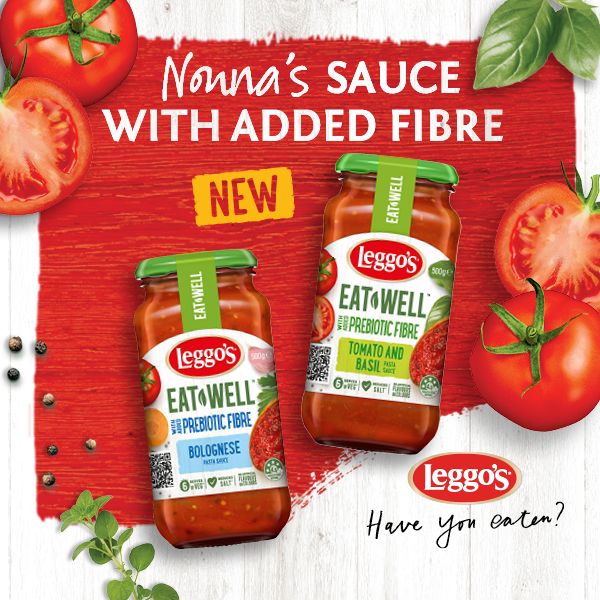The many challenges involved in using terms like ‘prebiotic’ are illustrated by the disappearance from the market of a pasta sauce from Leggo’s, one of Australia’s biggest brands in the tomato-based pastes and sauces space.
At the end of 2022 the 130-year-old company added extra fibre to two of its mass-market pasta sauces, enabling it to put “prebiotic” front and centre on its packaging. The launch was described by the company as a “category-first innovation” that would feed friendly bacteria in the gut while helping consumers meet their daily fibre needs.
Part of a line named Eat Well, the sauces contained 3% prebiotic fibre. The fibre source was not disclosed on-pack. One 125g serving of Leggo’s tomato sauce provided 5.4g fibre, more than twice as much as the 2g found in a serving of its regular tomato sauce.

Three years after launch the product has been discontinued. Leggo’s follows in the footsteps of several other mass-market brands – including major players like Kellogg’s and Nestlé – that have tried, and failed, to create growth by leaning into a ‘prebiotic’ positioning.
‘Prebiotic’ is a term with significant challenges. Whilst there is a good basis in science for the prebiotic benefit, most consumers have never heard of the term and don’t understand it. It is not a motivator to purchase for more than a niche of consumers – and certainly not in the mass market.
Repeated failures of brands labelled ‘prebiotic’ over the last 20 years have shown that there is no advantage in putting the word on the front of your package, unless you are marketing a niche product aimed at the most health-conscious consumers
Another challenge for Leggo’s’ Eat Well range was its category. Ready meals and sauces are all about convenience and taste. It is not an aisle that consumers enter looking for overt healthy claims. Claims such as ‘high fibre’ or ‘prebiotic’ can work for snacks or even sodas. But fibre and other gut health messages don’t figure very highly in most consumers’ thinking about dinner.

